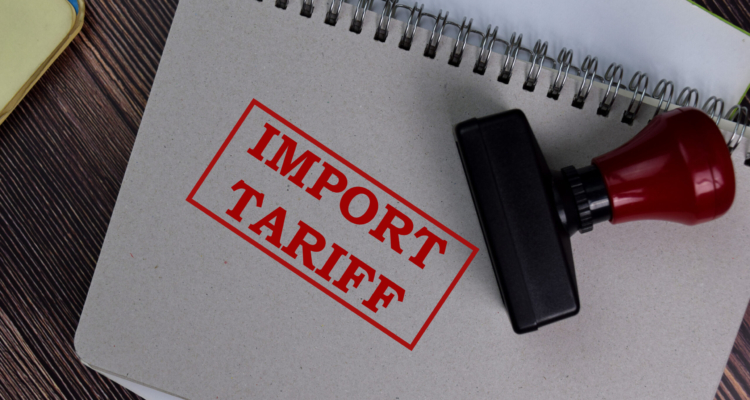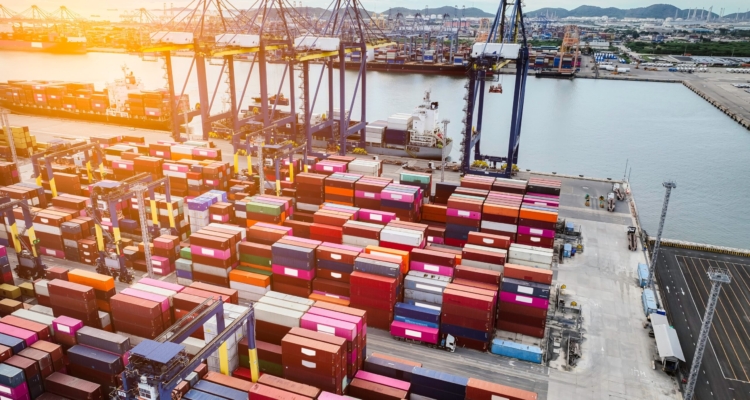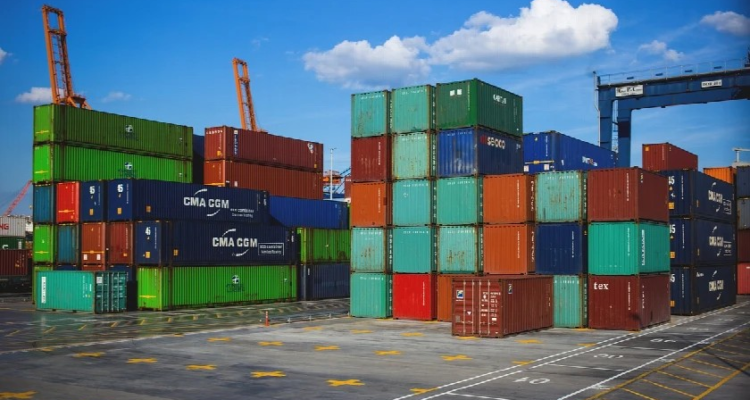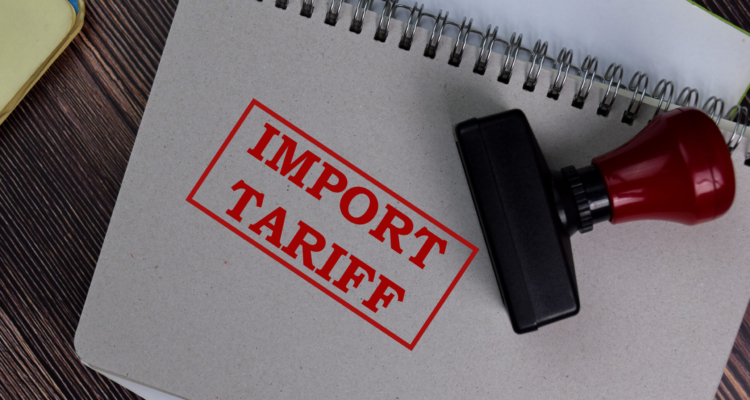Container Exchange Customer Inquiry: Trump 2.0, Tariffs
Donald Trump's inauguration as the 47th President of the United States on January 20, 2025, marked the beginning of a new chapter in global trade. Also read: Trump's proposed tariffs could trigger price increases and supply chain disruptions "With renewed emphasis on the 'America First' agenda, the Trump administration is preparing to make structural changes to global trade relationships. These changes are expected to impact key trade routes, tariffs, agreements and supply chain dynamics, prompting businesses across industries to adapt quickly Changing Logistics Costs and Productivity” shared. Christian Roeloffs, co-founder and CEO of Container xChange. “Higher tariffs, stricter trade agreements and the potential reorganization of key trade routes – especially amid geopolitical tensions such as the Panama Canal dispute – will challenge global supply chains and force container traders and shipping lines to adapt. " "At the same time, these shifts may create Opportunities for regional trade growth, alternative trade corridors, Strengthen cooperation among emerging markets. While the removal of…
U.S. companies hoard Chinese goods amid tariffs
Expectations that President-elect Donald Trump may impose new tariffs have fueled a surge in U.S. imports from China, as companies rush to buy goods before potential trade restrictions take effect. Also read: World Bank warns of global economic impact of proposed US tariffs Imports surge ahead of policy shift In December, U.S. seaports handled the equivalent of 451,000 40-foot containers of cargo from China, a 14.5% increase year-over-year, according to Descartes Systems Group. Compared with 2023, U.S. imports of products such as bedding, toys and electronics increased by 15%. The increase reflects concerns about impending tariffs on manufactured goods, with Trump having proposed tariffs of 10% to 60%. Unlike his first term, when tariffs focused on parts and components, experts predict the next wave of tariffs may focus on consumer goods. "China's final product exports to the United States have increased as importers aim to preempt potential tariffs on consumer goods," said Frederic Neumann, chief Asia economist at HSBC. Corporate…
Panasonic Energy plans to adjust supply chain strategy
Panasonic Energy, a key supplier to Tesla, has announced a strategic move to eliminate dependence on China for the supply of U.S.-made electric vehicle batteries. According to Yahoo Finance, this major shift highlights the company's determination to face the challenges posed by possible U.S. tariffs on Chinese goods. Also Read: Managing Tariff Rise in 2025: A Strategy Guide for Savvy Importers Allan Swan, president of Panasonic Energy North America, stressed that moving supply chains away from China has become a top priority, especially in light of upcoming policies. In an interview at the CES trade show in Las Vegas, Swan laid out the company's strategy to strengthen its manufacturing processes within the United States, where it already has operations in Nevada and plans to build a new factory in Kansas. According to the IndexBox platform, Japan’s lithium-ion battery exports reached an impressive US$3.1 billion in 2023. A large portion of these exports, valued at $1.6 billion, were destined for the…
China announces tariff adjustments to boost imports
Beijing announced strategic changes to import tariffs, targeting key materials to spur economic growth and support environmental initiatives. The Ministry of Finance revealed over the weekend that the new adjustments will be implemented from January 1. Also read: Asian exporters gain momentum as Trump tariffs reshape trade landscape The Ministry of Commerce stated that temporary import tariffs lower than the most-favored-nation rate will apply to 935 items. These include ethane reduction and certain recycling of copper and aluminum raw materials. The move is in line with China’s broader goal of promoting green and low-carbon development. Data from the IndexBox platform shows that China’s aluminum import market alone shows significant growth potential, driven by sustainable industrial practices and increased demand for recycled materials. In addition, tariff reform will also lead to higher prices for commodities such as molasses and sugary premixes. Instead, cuts will apply to products such as cyclic olefin polymers, ethylene-vinyl alcohol copolymers and automatic transmissions designed for special-purpose…
Resilience in Uncertainty: How Businesses Can Prepare
The possibility of new tariffs has reignited concerns among businesses that rely on global supply chains. While the scope and severity of these tariffs remains uncertain, the potential impacts on costs, operations and consumer prices underscore the importance of proactive preparation. Businesses that take proactive steps to anticipate and adapt to these changes will be better able to deal with any disruptions. Also read: Strike fears, tariff plans drive early import surge at U.S. ports Looking back at the Trump administration’s previous tariff cycles reveals an important lesson: preparation is key. Diversification efforts such as the China Plus One strategy offer ways to manage the risks of overreliance on sourcing from a single country. Manufacturers, especially in industries such as apparel and automobiles, are beginning to explore alternatives in countries such as Vietnam, Mexico and India. This trend has accelerated in recent years, providing a valuable blueprint for businesses facing new trade uncertainties. However, supply chain diversification is only part…
Asian exporters gain momentum as Trump tariffs push
U.S. President-elect Donald Trump's proposed tariffs on Chinese products are expected to accelerate container import growth from Vietnam, Thailand and South Korea. These countries have already benefited from supply chain shifts since 2017 and are expected to reap further gains as companies diversify away from China. Also read: Global leaders warn of possible economic fallout from Trump tariff proposals Vietnam: a rising export powerhouse According to Linerlytica's report, Vietnam's container exports to the United States exceeded 2 million TEUs in the first 10 months of 2024, more than double the export volume in 2017. Data from the World Customs Organization showed a year-on-year increase of 41% in the second quarter of 2024, reflecting the continued shift of manufacturing to Vietnam. Factors driving this growth include Vietnam's well-educated workforce, competitive operating costs and improving diplomatic relations with the United States. These advantages make Vietnam a key player in the changing dynamics of global trade. Thailand: Strong growth in agricultural exports Thailand…
Global leaders warn of proposed economic impact
Officials in Mexico, Canada and China have expressed strong concerns about U.S. President-elect Donald Trump's proposal to impose sweeping tariffs on goods from these major trading partners. Officials have warned that such measures could harm all economies involved, fuel inflation, disrupt the job market and destabilize global trade. Also read: “US importers to face tariffs regardless of election outcome” The tariffs announced Monday include a 25% tariff on imports from Canada and Mexico, and an additional 10% on Chinese goods. Trump said the need to combat the flow of illegal drugs and strengthen border controls were key drivers behind the move. Leaders of affected countries have urged dialogue to prevent economic damage. Mexican President Claudia Sheinbaum expressed her concerns at a press conference, saying: "One tariff will lead to another, putting our mutual business at risk." Sheinbaum intends to The issue was discussed directly with Trump in a letter and planned phone call. Likewise, Bank of Canada Deputy Governor Rees…
Trade wars and dinner tables: Which foods make the most
A new study from Trace One identifies the potential impact of import tariffs and shortages of foreign goods on U.S. food supplies. Also read: “US importers to face tariffs regardless of election outcome” Donald Trump's recent plan to impose 25% tariffs on imports from Mexico and Canada, and an additional 10% on goods from China, could have a significant impact on American consumers. The three countries together supply nearly half (45%) of U.S. food and beverage imports, making everyday staples more vulnerable to rising prices. Currently, nearly one-fifth of the U.S. food supply is imported from abroad, and the average American household spends nearly 14% of its annual budget on food and beverages. For many, this is already a burden—28% of U.S. adults report difficulty affording food, and 13.5% of households are classified as food insecure, meaning they cannot reliably obtain adequate nutrition. To better understand the potential impact of import tariffs and shortages of foreign goods on the U.S.…















